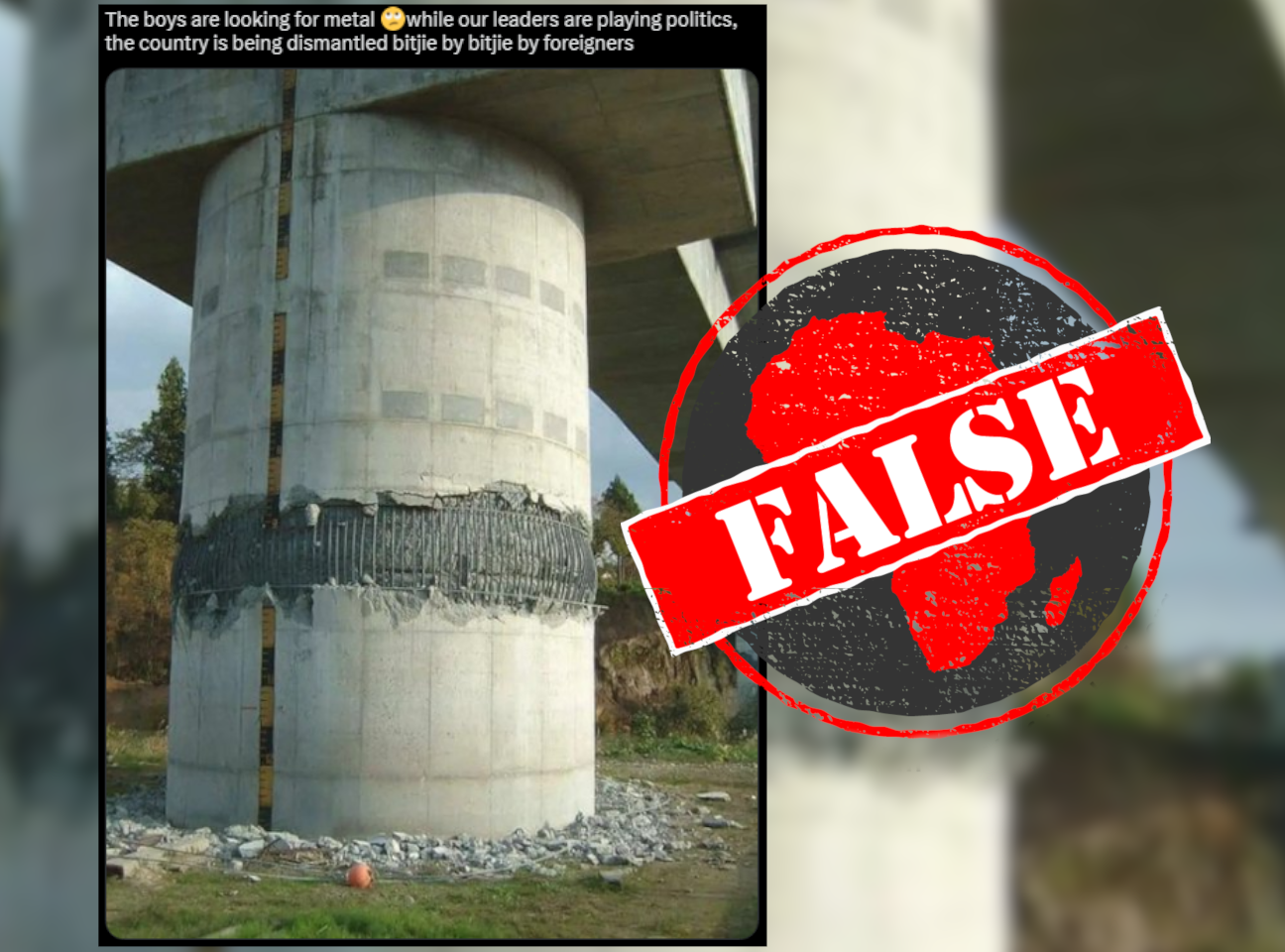IN SHORT: South Africans and Ugandans on social media were quick to claim a photo showing a damaged concrete pillar was down to vandalism. But this isn’t true – the photo shows a pier damaged in an earthquake in Japan in 2004.
“The boys are looking for metal” begins a social media post that circulated in South Africa in late February 2023. “While our leaders are playing politics, the country is being dismantled bitjie by bitjie by foreigners,” it continues.
“Bitjie by bitjie” is a misspelling of the Afrikaans “bietjie by bietjie” which means “bit by bit”.
The post includes a photo of what appears to be the damaged concrete support for a bridge, with its metal rods exposed.
Other versions of the photograph were also posted in South Africa on the same day, here and here. One user captioned the photo: “Is this the Gautrain railway? This is dangerous.” The Gautrain is a train service in the Gauteng province of South Africa.
Other users claimed the photo was taken in Uganda, more specifically the “cracking pillar” of an expressway in the country. So where – and when – is the photo really from?

Photo is of bridge in post-earthquake Japan in 2004
A Google Lens search quickly revealed that the photo was not taken in South Africa or elsewhere in Africa. It shows the crumbling support of a bridge in Japan almost two decades earlier than claimed.
The photo originally appeared in a 2005 report published by the Earthquake Engineering Research Institute, showing the effects of an earthquake that hit the Niigata prefecture in Japan in late October 2004.
According to the report, the photo shows the “Damaged piers of Joetsu Shinkansen Wanazu Bridge” in the town of Kawaguchi. The report reads: “Piers supporting the Wanazu Bridge over the Uono River suffered a flexural failure due to a reinforcement discontinuity.”
Herman Mashaba, leader of opposition party ActionSA, has in the past been criticised for making xenophobic statements about foreigners in South Africa.
In a now-deleted response to the original post on Twitter, Mashaba jumped on the bandwagon and tweeted: “Breakdown of the Rule of Law as a result of being governed by a criminal enterprise. No wonder South Africa is Grey listed.”
It didn’t take long for South Africans on social media to point out the inaccuracy of Mashaba’s response, calling on the politician to “apologise to [South Africa] for sharing fake news”.
Republish our content for free
For publishers: what to do if your post is rated false
A fact-checker has rated your Facebook or Instagram post as “false”, “altered”, “partly false” or “missing context”. This could have serious consequences. What do you do?
Click on our guide for the steps you should follow.
Publishers guideAfrica Check teams up with Facebook
Africa Check is a partner in Meta's third-party fact-checking programme to help stop the spread of false information on social media.
The content we rate as “false” will be downgraded on Facebook and Instagram. This means fewer people will see it.
You can also help identify false information on Facebook. This guide explains how.


Add new comment